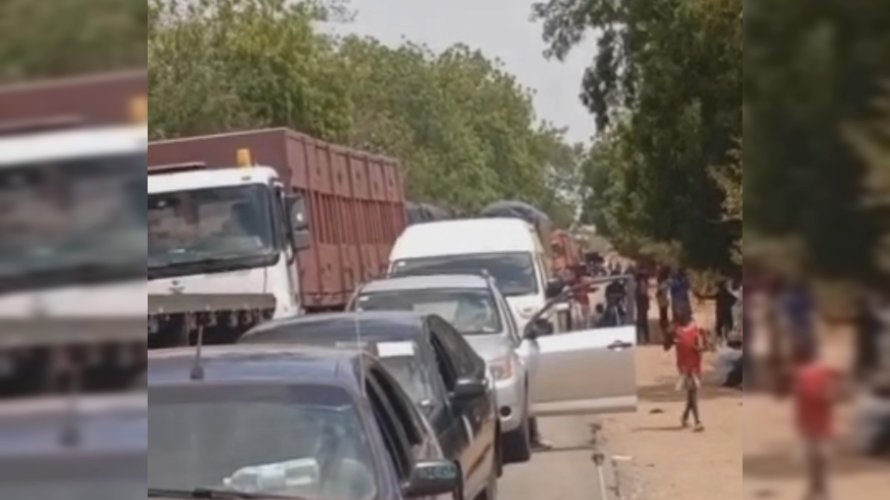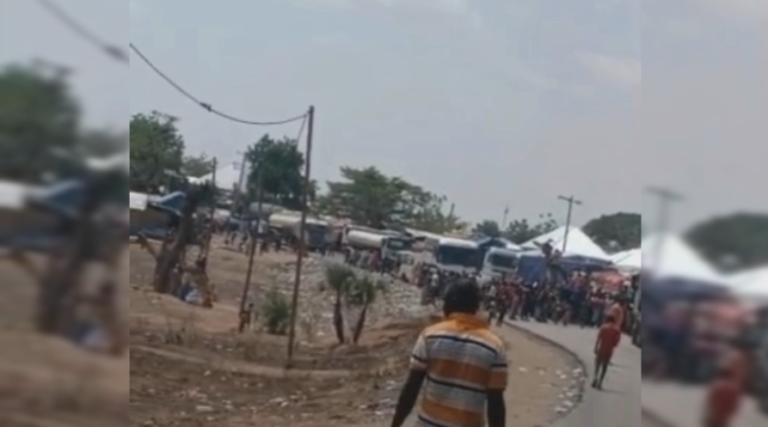Garoua, Cameroon – Cameroon is confronting a multifaceted crisis that threatens the stability of strongman Paul Biya’s long-standing regime. Recent days have seen an unprecedented uprising in the Grand North, where citizens have blocked major highways to protest underdevelopment and the upcoming elections. This civil unrest adds to the ongoing Southern Cameroons/Ambazonia conflict, raising concerns about the government’s ability to maintain control and the potential for widespread instability.
In late 2024, authorities uncovered a significant arms cache in Cameroon’s Grand North region, signaling a brewing insurgency. But Cameroon refused to attribute it to an insurgency, telling the world that the arms cache was in transit to another country. Since then, insurgent attacks have escalated in the area one, resulting in the deaths of over 22 Cameroonian soldiers, highlighting the severity of the threat. On Thursday, May 28, civilians escalated their protests by blocking all major highways in and out of the region, expressing frustration over chronic underdevelopment, lack of infrastructure, and skepticism about the legitimacy of the upcoming elections.
The Grand North, historically marginalized and economically neglected, is now voicing its grievances loudly. The government’s failure to address these longstanding issues has fueled the current unrest, which some analysts view as a tipping point in the nation’s political landscape.
Since 2016, the Southern Cameroons, a territory that Cameroon claims belongs to it, but which has since declared independence, have been embroiled in an independence conflict, with groups advocating for the independence of “Ambazonia.” The government’s military response has been marked by human rights abuses, including extrajudicial killings and the burning of towns and villages. Despite international condemnation, the conflict persists, with the Cameroon army committing atrocities that have displaced over a million people and resulted in thousands of deaths.
The Anglophone conflict has exposed deep-seated issues of governance, representation, and cultural identity in Cameroon. The government’s reluctance to engage in meaningful dialogue has only exacerbated tensions, leading to a protracted conflict with no clear resolution in sight.
Cameroon’s military is stretched thin, contending with insurgencies in the Grand North, the Anglophone regions, and threats from Boko Haram in the Far North. The recent loss of over 22 soldiers in the Grand North underscores the mounting pressure on the armed forces. Morale is reportedly low, and there are concerns about the sustainability of military operations on multiple fronts.
The army’s heavy-handed tactics have also drawn criticism, with reports of abuses further alienating the civilian population. This erosion of public trust complicates counterinsurgency efforts and raises questions about the military’s capacity to restore order without significant reforms.

Paul Biya, now 92, has ruled Cameroon since 1982. His prolonged absence from public life has fueled speculation about his health and the future of his regime. The upcoming October 2025 elections are shrouded in uncertainty, with opposition parties questioning their fairness and the government’s commitment to democratic principles.
The political opposition remains fragmented, and the government’s suppression of dissent has stifled meaningful political discourse. This environment has created a vacuum where grievances fester, and alternative movements gain traction.
The unrest in the Grand North presents both challenges and opportunities for the Ambazonian independence movement. The simultaneous uprisings could strain the government’s resources, potentially creating openings for Ambazonians to advance their cause. However, aligning with other discontented regions requires careful navigation to avoid diluting their specific objectives.
The international community’s response to Cameroon’s crises has been criticized as tepid. Human rights organizations have documented abuses, but concrete actions remain to be seen. As the situation deteriorates, there is an urgent need for international actors to engage more robustly, supporting dialogue and accountability measures.
Regional organizations, such as the African Union, and global powers must prioritize Cameroon’s stability, recognizing that continued neglect could have broader implications for Central Africa’s security and development.
Addressing the root causes of discontent, embracing meaningful reforms, and fostering dialogue are essential steps towards preventing a multiregional war.
Failure to act decisively risks plunging the nation into deeper instability, with consequences that could reverberate beyond its borders. The time for engagement, both domestically and internationally, is now.

